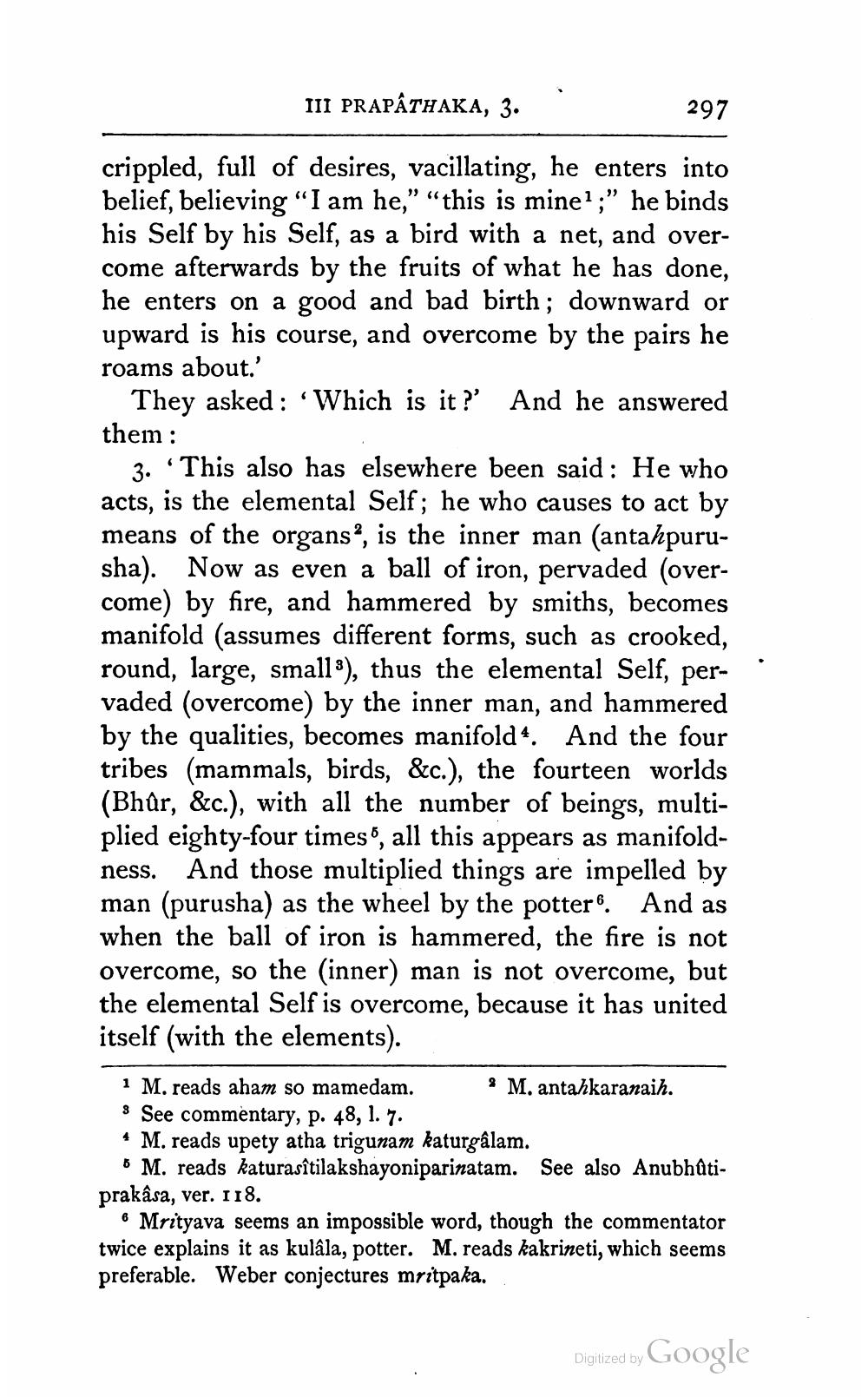________________
III PRAPATHAKA, 3.
297
crippled, full of desires, vacillating, he enters into belief, believing "I am he," "this is mine1;" he binds his Self by his Self, as a bird with a net, and overcome afterwards by the fruits of what he has done, he enters on a good and bad birth; downward or upward is his course, and overcome by the pairs he roams about.'
They asked: 'Which is it?' And he answered them:
"
3. This also has elsewhere been said: He who acts, is the elemental Self; he who causes to act by means of the organs', is the inner man (antahpurusha). Now as even a ball of iron, pervaded (overcome) by fire, and hammered by smiths, becomes manifold (assumes different forms, such as crooked, round, large, small3), thus the elemental Self, pervaded (overcome) by the inner man, and hammered by the qualities, becomes manifold1. And the four tribes (mammals, birds, &c.), the fourteen worlds (Bhûr, &c.), with all the number of beings, multiplied eighty-four times", all this appears as manifoldness. And those multiplied things are impelled by man (purusha) as the wheel by the potter". And as when the ball of iron is hammered, the fire is not overcome, so the (inner) man is not overcome, but the elemental Self is overcome, because it has united itself (with the elements).
1 M. reads aham so mamedam.
3 See commentary, p. 48, 1. 7.
M. reads upety atha trigunam katurgâlam.
2 M. antahkaranaih.
M. reads katurasîtilakshayoniparinatam. See also Anubhutiprakâsa, ver. 118.
• Mrityava seems an impossible word, though the commentator twice explains it as kulâla, potter. M. reads kakrineti, which seems preferable. Weber conjectures mritpaka.
Digitized by
Google




